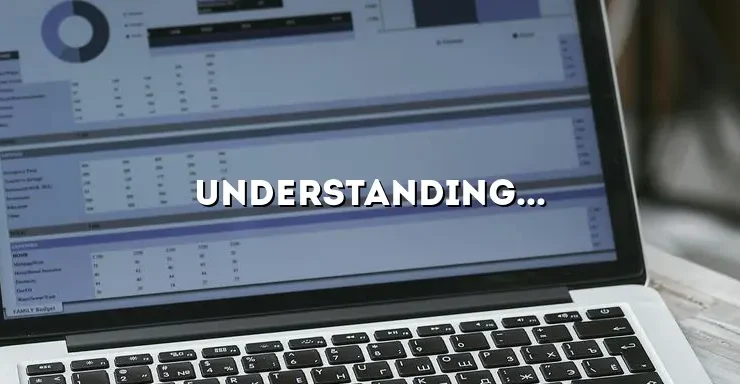
Horse ownership comes with a myriad of responsibilities, from providing proper nutrition and veterinary care to ensuring the safety and security of your beloved equine companion. However, one aspect that often goes overlooked is horse mortality insurance. In this comprehensive guide, we will delve into the significance of this type of insurance, its coverage, and how it can safeguard your financial investment in the unfortunate event of your horse’s death.
Understanding Horse Mortality Insurance
Securing horse mortality insurance is a fundamental step in protecting your equine investment. This section will provide a detailed overview of horse mortality insurance, explaining its purpose, coverage, and the factors that influence premiums.
Purpose of Horse Mortality Insurance
Horse mortality insurance provides coverage in the event of your horse’s death due to accidents, illnesses, or other covered causes. It offers financial protection by reimbursing you for the value of the horse, ensuring that you do not bear the full financial burden of the loss.
Types of Policies Available
When considering horse mortality insurance, you will encounter various policy options. These include full mortality coverage, which provides compensation for the total value of the horse, and limited or named perils coverage, which covers specific causes of death specified in the policy. Understanding the differences between these policies will help you choose the right coverage for your equine companion.
Insuring Horses of Different Ages and Breeds
The age and breed of your horse can influence the availability and cost of insurance coverage. Younger horses may qualify for lower premiums due to their presumed lower risk of health issues, while older horses may require additional medical tests or have limited coverage options. Similarly, certain breeds may be more prone to specific health conditions, affecting their insurability and premium rates.
Factors Affecting Premiums
Several factors come into play when insurers determine horse mortality insurance premiums. This section will explore these factors, including the age, breed, intended use, medical history, and training of the horse. Understanding how these variables impact premiums will enable you to make informed decisions and budget effectively for insurance costs.
Evaluating Coverage Options
Choosing the right coverage for your horse is crucial to ensure adequate protection. This section will explore the different coverage options available, such as major medical coverage, loss of use coverage, and liability coverage.
Major Medical Coverage
Major medical coverage offers protection against unexpected veterinary expenses resulting from accidents, illnesses, or surgeries. This coverage can be particularly valuable for horses involved in high-risk activities or those susceptible to specific medical conditions.
Loss of Use Coverage
Loss of use coverage provides compensation if your horse becomes permanently unable to perform its intended use due to an accident, injury, or illness. This coverage can be essential for horses involved in competitive disciplines or those relied upon for breeding purposes.
Liability Coverage
Liability coverage protects you in the event that your horse causes injury or property damage to a third party. This coverage is especially important if you regularly participate in equestrian events, offer riding lessons, or allow others to handle or ride your horse.
Factors Affecting Premiums
Understanding the factors that influence horse mortality insurance premiums is essential for budgeting effectively. In this section, we will discuss the variables that insurers consider when determining premiums, including the horse’s age, breed, intended use, and medical history.
Age and Health of the Horse
The age and health of your horse play significant roles in premium calculations. Younger, healthier horses generally have lower premiums since they are considered less likely to suffer from health issues. Conversely, older horses or those with pre-existing medical conditions may have higher premiums due to the increased risk of illness or mortality.
Breed and Intended Use
Certain breeds may be more prone to specific health conditions or injuries, influencing the risk assessment and premium rates. Additionally, the intended use of the horse, such as recreational riding, competition, or breeding, can impact the coverage options available and the associated costs.
Training and Experience
The level of training and experience your horse possesses can also affect insurance premiums. Well-trained horses with a proven track record of success in their intended discipline may be viewed as lower risk, potentially resulting in lower premiums. On the other hand, inexperienced or untrained horses may pose a higher risk, leading to higher premiums.
Common Misconceptions about Horse Mortality Insurance
There are several misconceptions surrounding horse mortality insurance that can lead to costly mistakes. This section aims to debunk these myths and highlight the importance of dedicated equine insurance.
Horses Covered Under Homeowner’s Insurance
A common misconception is that horses are automatically covered under a homeowner’s insurance policy. In reality, most homeowner’s policies have limitations or exclusions when it comes to equine coverage. It is essential to secure dedicated horse mortality insurance to ensure comprehensive protection for your horse.
Underestimating Financial Impact
Some horse owners underestimate the financial impact of a horse’s death. The cost of purchasing and maintaining a horse can be substantial, and in the event of an uninsured loss, the financial burden can be devastating. Horse mortality insurance provides the necessary financial safety net to mitigate these risks.
Case Studies: Real-Life Examples
In this section, we will present a series of real-life case studies illustrating the importance of horse mortality insurance. These stories will demonstrate the financial consequences of not having adequate coverage and the relief provided by insurance policies in times of unexpected loss.
Case Study 1: A Devastating Accident
One horse owner experienced a tragic accident where their horse sustained severe injuries. Without horse mortality insurance, the owner faced exorbitant veterinary bills and ultimately had to make the difficult decision to euthanize the horse due to financial constraints. This case emphasizes the importance of having adequate coverage to avoid such heartbreaking situations.
Case Study 2: A Lifesaving Surgery
Another horse owner encountered a life-threatening medical condition in their equine companion. Thanks to their horse mortality insurance, they were able to proceed with a costly surgical procedure that successfully saved the horse’s life. This case demonstrates how insurance can provide access to life-saving treatments that may otherwise be unaffordable.
Choosing the Right Insurance Provider
Selecting the right insurance provider is crucial to ensure reliable coverage and smooth claims processing. This section will guide you through the process of choosing a reputable and trustworthy insurance provider.
Researching Financial Stability
Before committing to an insurance provider, it is essential to research their financial stability. Look for companies with a strong financial rating, as this indicates their ability to fulfill their financial obligations in the event of a claim.
Understanding Claims Process
Review the claims process of potential insurance providers. Ensure that they have a straightforward and efficient process for filing and resolving claims. Reading reviews or seeking recommendations from other horse owners can provide valuable insights into the claims handling capabilities of different insurance companies.
Seeking Recommendations
Reach out to fellow horse owners and industry professionals for recommendations on reputable insurance providers. Their firsthand experiences and insights can help you make an informed decision and choose a provider that best suits your needs and preferences.
The Peace of Mind of Horse Mortality Insurance
Protecting your equine investment goes beyond providing proper care – it also involves securing horse mortality insurance for your horse’s financial well-being. This section will emphasize the peace of mind that horse mortality insurance offers.
Financial Protection
Horse mortality insurance provides financial protection, ensuring that you do not bear the full financial burden in the event of your horse’s death. With compensation for the horse’s value, you can avoid significant financial setbacks and continue your equestrian pursuits without undue financial strain.
Reinvestment Opportunities
In the unfortunate event of a horse’s death, having insurance coverage can provide the opportunity to reinvest in another horse. By mitigating the financial loss, you can continue pursuing your equestrian goals and find a suitable replacement without delay.
Emotional Support
Losing a beloved horse is emotionally devastating, and the last thing you want to worry about is financial strains. Horse mortality insurance offers emotional support by alleviating the additional stress of dealing with significant financial losses. Knowing that you have financial protection in place allows you to focus on grieving and healing.
In conclusion, investing in horse mortality insurance is a crucial step in safeguarding your equine companion and your financial stability. By understanding the intricacies of this type of insurance and the coverage options available, you can make informed decisions that align with your horse’s needs and your budget. Remember, horse ownership is not only a privilege but also a significant responsibility, and securing proper insurance coverage is an essential aspect of fulfilling that responsibility.
Don’t wait until it’s too late – take the necessary steps to protect your equine investment today.






